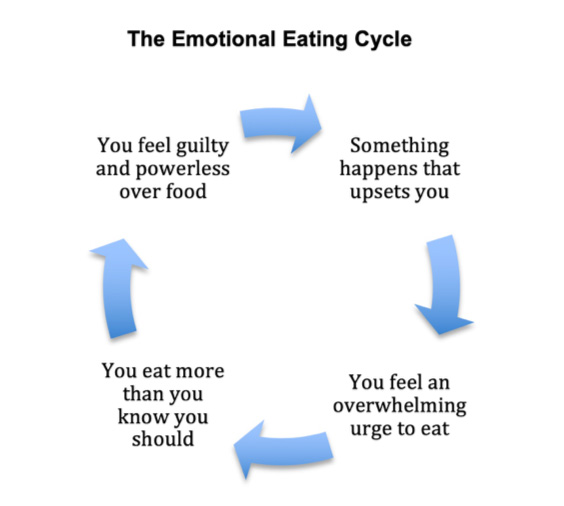Emotional eating is a common issue that many people struggle with. In simple terms, it refers to the act of using food to cope with emotions rather than hunger or nutritional needs. This can often lead to overeating and weight gain, making it difficult to maintain a healthy lifestyle. However, by understanding the triggers of emotional eating and implementing effective coping strategies, it is possible to overcome this challenge and achieve sustainable weight management. In this blog post, we will explore some of the top coping strategies for mastering emotional eating.
Understanding Emotional Eating Triggers
The first step in overcoming emotional eating is to understand the triggers that lead to it. These triggers can vary from person to person, but common ones include stress, boredom, loneliness, and negative emotions such as anxiety and sadness. It is essential to identify your personal triggers so that you can be more aware of when they occur and take steps to prevent or manage them.
One helpful tool in identifying triggers is keeping a food and mood diary. This involves writing down what you eat and how you feel throughout the day. By doing this, you may start to notice patterns between your emotions and food choices. For example, you may find that you tend to reach for sugary snacks when feeling stressed or anxious. Once you have identified your triggers, you can then move on to finding healthier ways to cope with them.
Stress Management Techniques
Stress is a major trigger for emotional eating. When we are stressed, our bodies release the hormone cortisol, which can increase our appetite and cravings for unhealthy foods. Therefore, managing stress is crucial in overcoming emotional eating. There are various techniques that you can incorporate into your daily routine to help reduce stress levels.
- Meditation: Taking a few minutes each day to meditate can have a significant impact on reducing stress and promoting mindfulness. Find a quiet and comfortable place to sit, close your eyes, and focus on your breathing. As thoughts come into your mind, acknowledge them, and let them go without judgment.
- Exercise: Physical activity is a great way to release tension and stress from the body. Find an exercise that you enjoy, whether it’s walking, yoga, or dancing, and make it a regular part of your routine.
- Deep Breathing: When we are stressed, our breaths tend to become shallow. Taking deep breaths can help calm the mind and relax the body. Try taking five deep breaths in and out whenever you feel stressed or overwhelmed.
Identifying Hunger vs. Emotional Cravings
One of the most challenging aspects of emotional eating is differentiating between physical hunger and emotional cravings. Emotional cravings often come suddenly and are focused on specific foods, whereas physical hunger gradually builds over time and can be satisfied with any type of food. Learning to listen to your body and recognizing the signs of true hunger can help prevent overeating and emotional eating.
Developing Mindful Eating Practices
Mindful eating is a technique that involves paying attention to the present moment while eating, without distractions. By doing this, we can become more aware of our bodies and their needs. Here are some tips for incorporating mindful eating into your daily routine:
- Eat slowly: Take your time to eat and savor each bite. Put down your fork between bites and take breaks to check in with your body and see if you are still hungry.
- Eliminate distractions: Avoid eating in front of the TV or while scrolling through your phone. Instead, find a quiet and peaceful place to eat without distractions.
- Listen to your body: Before reaching for a snack, ask yourself if you are truly hungry or if there is something else driving the desire to eat. If you are genuinely hungry, choose a nutritious and satisfying option.
Creating a Support System
Having a support system is essential in managing emotional eating. It can be challenging to overcome this issue on your own, and having friends and family to lean on can make a significant difference. Here are some ways to create a supportive network:
- Join a support group: There are many online and in-person support groups for individuals struggling with emotional eating. Being part of a community of like-minded people can provide motivation and accountability.
- Talk to a trusted friend or family member: Share your struggles with someone you trust. They can offer a listening ear and provide encouragement and support.
- Consider therapy: If emotional eating has become a severe issue for you, don’t hesitate to seek professional help. A therapist can help you work through underlying emotional issues that may be contributing to your eating habits.
Healthy Substitutes for Comfort Foods
Comfort foods often go hand in hand with emotional eating. These are the foods we turn to when seeking comfort or relief from difficult emotions. However, they are typically high in calories, sugar, and unhealthy fats, which can lead to weight gain. Instead of turning to these foods, try incorporating healthier substitutes into your diet. Here are some ideas:
- Fruit: When craving something sweet, reach for fresh fruit instead of candy or baked goods. Fruit is full of essential vitamins and minerals and contains natural sugars.
- Vegetables: Replace chips and other salty snacks with veggies like carrots, celery, or cucumbers. You can dip them in hummus or guacamole for added flavor.
- Dark chocolate: If you have a sweet tooth, opt for dark chocolate with a high percentage of cocoa. It contains less sugar than milk chocolate and is rich in antioxidants.
Incorporating Regular Physical Activity

Regular physical activity is crucial for maintaining overall health and can also play a significant role in managing emotional eating. Exercise not only burns calories but also releases endorphins, which are the body’s natural “feel-good” chemicals. Here are some tips for incorporating exercise into your lifestyle:
- Find activities you enjoy: Instead of forcing yourself to do a workout that you dread, find physical activities that you genuinely enjoy. This could be dancing, hiking, swimming, or anything else that gets your body moving.
- Make it a habit: Set aside time each day for physical activity, even if it’s just a short walk. Making it a regular part of your routine will help it become a habit.
- Mix it up: Don’t stick to one type of exercise. Mix it up and try new activities to keep things interesting and prevent boredom.
Setting Realistic and Achievable Goals
Setting realistic and achievable goals is essential in overcoming emotional eating and achieving sustainable weight management. Having a goal gives us something to work towards and keeps us motivated. However, setting unrealistic goals can lead to disappointment and frustration, making it easier to turn to emotional eating. Here are some tips for setting effective goals:
- Be specific: Instead of setting a general goal like “lose weight,” be more specific, such as “lose 10 pounds in three months.”
- Make it measurable: Set a target that can be measured, such as tracking your food intake or number of workouts per week.
- Start small: Don’t try to change everything at once. Start with small, achievable goals and build on them over time.
Seeking Professional Help When Needed

Finally, if emotional eating has become a severe issue for you, don’t hesitate to seek professional help. A therapist or counselor can help you address underlying emotional issues that may be driving your eating habits. They can also provide tools and strategies to cope with emotions in healthier ways.
Additionally, a registered dietitian can offer personalized nutritional advice and guidance to help manage weight and overcome emotional eating. They can also work with you to develop a meal plan that suits your needs and lifestyle.
Conclusion
Emotional eating can be a challenging issue to overcome, but with the right strategies, it is possible to achieve sustainable weight management. By understanding triggers, developing mindful eating practices, creating a support system, incorporating regular physical activity, and setting realistic goals, you can take control of emotional eating and lead a healthier lifestyle. Don’t be afraid to seek professional help if needed, as healing from emotional eating is a journey that may require support and guidance. Remember to be patient and kind to yourself throughout this process, and celebrate small victories along the way. With determination and perseverance, you can master emotional eating and achieve your health and wellness goals.

